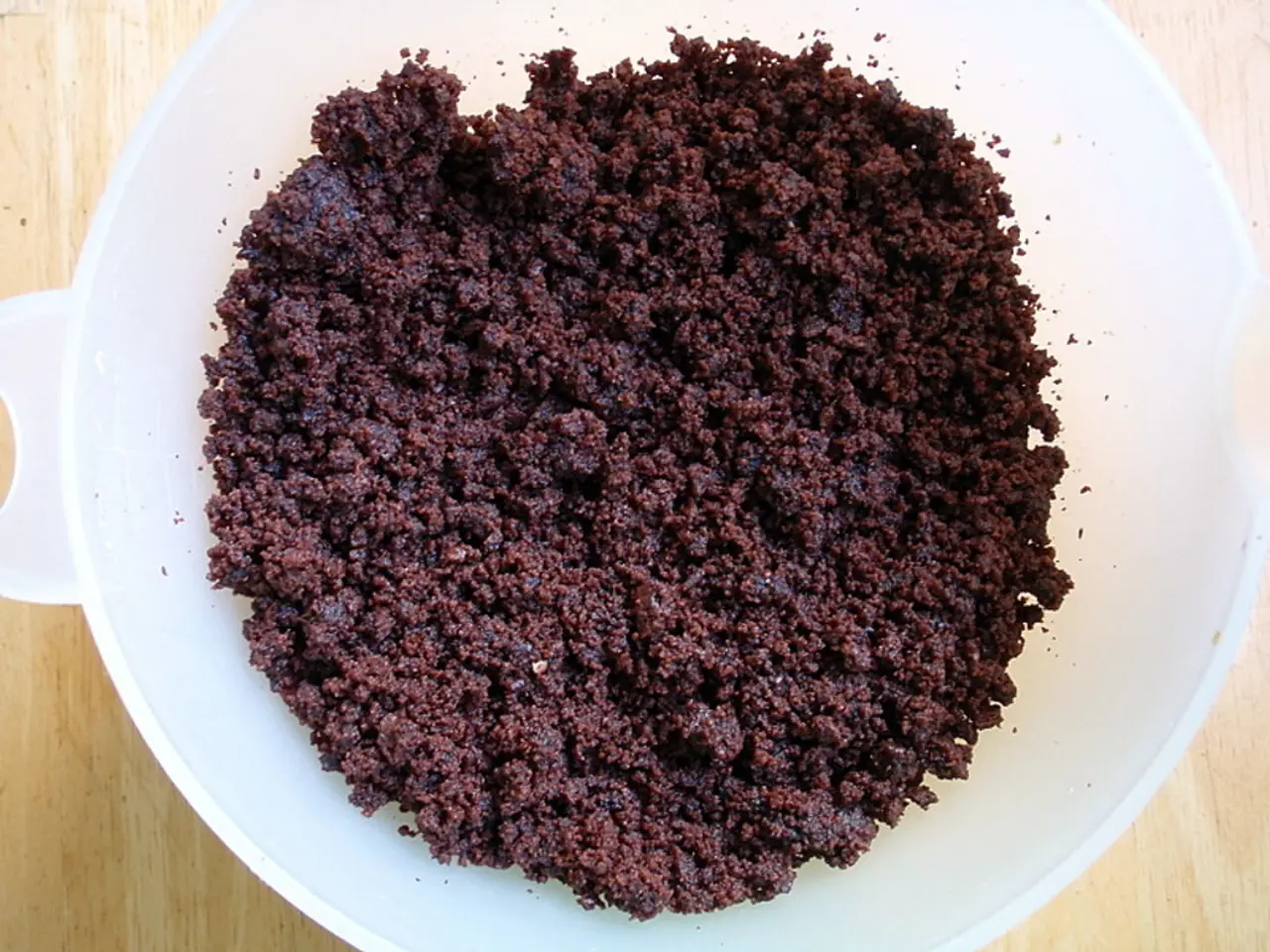Pivotal data for liquid biopsy is shared by Freenome, with the FDA filing process approaching conclusion
In the realm of cancer screening, two innovative approaches are making waves – Freenome's blood-based test and Exact Sciences' stool-based Cologuard Plus. Both tests aim to detect colorectal cancer and precancerous cells, but their methods and effectiveness vary significantly.
Freenome's test, employing advanced genomics and machine learning, targets cancer biomarkers in the blood. While specific sensitivity data for Freenome's test might not be widely available, blood-based tests generally offer a less invasive alternative to traditional methods. The effectiveness and sensitivity can, however, vary based on the specific biomarkers used and the population tested.
Exact Sciences' Cologuard Plus, on the other hand, is a stool-based DNA test that analyses stool for DNA biomarkers to detect precancerous cells and colorectal cancer. The original Cologuard test had a reported sensitivity of about 92% for detecting colorectal cancer, but its effectiveness for precancerous polyps was lower, at 42% for lesions with high-grade dysplasia and 42% for adenomas ≥1 cm. The updated Cologuard Plus aims to improve these figures, but specific data on its sensitivity for precancerous cells is not yet available.
Comparing the two tests, Freenome's blood-based test is generally less invasive, requiring only a blood sample, while Cologuard Plus requires a stool sample. In terms of sensitivity, both tests can vary based on the specific biomarkers and populations tested. Cologuard Plus is known for its high sensitivity for detecting colorectal cancer, but its effectiveness for precancerous cells is generally lower.
Freenome's test, with its advanced technology, potentially offers high specificity and sensitivity if the biomarkers are well-defined. Cologuard Plus, while effective, may not capture all types of precancerous lesions due to its reliance on stool DNA analysis.
Recent data published by Freenome in the JAMA paper includes a pre-specified analysis that weighted test performance to match the sex and age distribution of the U.S. population. In this analysis, Freenome reported 79.2% sensitivity for colorectal cancer and 91.5% specificity for advanced colorectal neoplasia compared to colonoscopy. The test had a sensitivity of 57.1% for the detection of stage 1 cancer and 100% for stage 4 tumors. However, the test was least effective at detecting advanced precancerous lesions, achieving a sensitivity of 12.5%. For high-grade dysplasia and carcinoma in situ, the sensitivity was 29.1%.
Exact Sciences' Cologuard Plus, in comparison, has a higher sensitivity for detecting high-grade dysplasia compared to Freenome's blood test, at 74% versus Freenome's reported 29.1%.
In conclusion, while both tests offer innovative approaches to colorectal cancer screening, a direct comparison of sensitivity for detecting precancerous cells requires more specific data from clinical trials or studies. Freenome's approach might offer advantages in terms of convenience and non-invasiveness, but Cologuard Plus has established a track record with its DNA-based stool test.
Early detection of colorectal cancer is crucial for ensuring positive outcomes, as the five-year survival rate is around 90% for localized disease compared to below 20% for cancer that has spread to distant parts of the body. As research continues, we can expect further advancements in colorectal cancer screening technologies, offering hope for improved outcomes and earlier detection.
- Freenome's analysis of cancer biomarkers in the blood, using advanced genomics and machine learning, could potentially provide high specificity and sensitivity for detecting colorectal cancer if the biomarkers are well-defined.
- Exact Sciences' Cologuard Plus, in comparison, has a higher sensitivity for detecting high-grade dysplasia, as reported in their data, compared to Freenome's blood test.
- While Exact Sciences' Cologuard Plus is known for its high sensitivity for detecting colorectal cancer, it may not capture all types of precancerous lesions due to its reliance on stool DNA analysis.
- In the realm of medtech diagnostics, both Freenome's blood-based test and Exact Sciences' stool-based Cologuard Plus aim to advance health-and-wellness by detecting colorectal cancer and precancerous cells, although their methods, effectiveness, and suitability for specific medical-conditions vary due to factors like the specific biomarkers and populations tested.
- The five-year survival rate for localized colorectal cancer is around 90%, emphasizing the importance of early detection, while cancer that has spread to distant parts of the body has a survival rate of less than 20%. As science and medtech continue to advance, we can anticipate further developments in diagnostics and analytics for colorectal cancer screening, potentially leading to improved outcomes and earlier detection.




